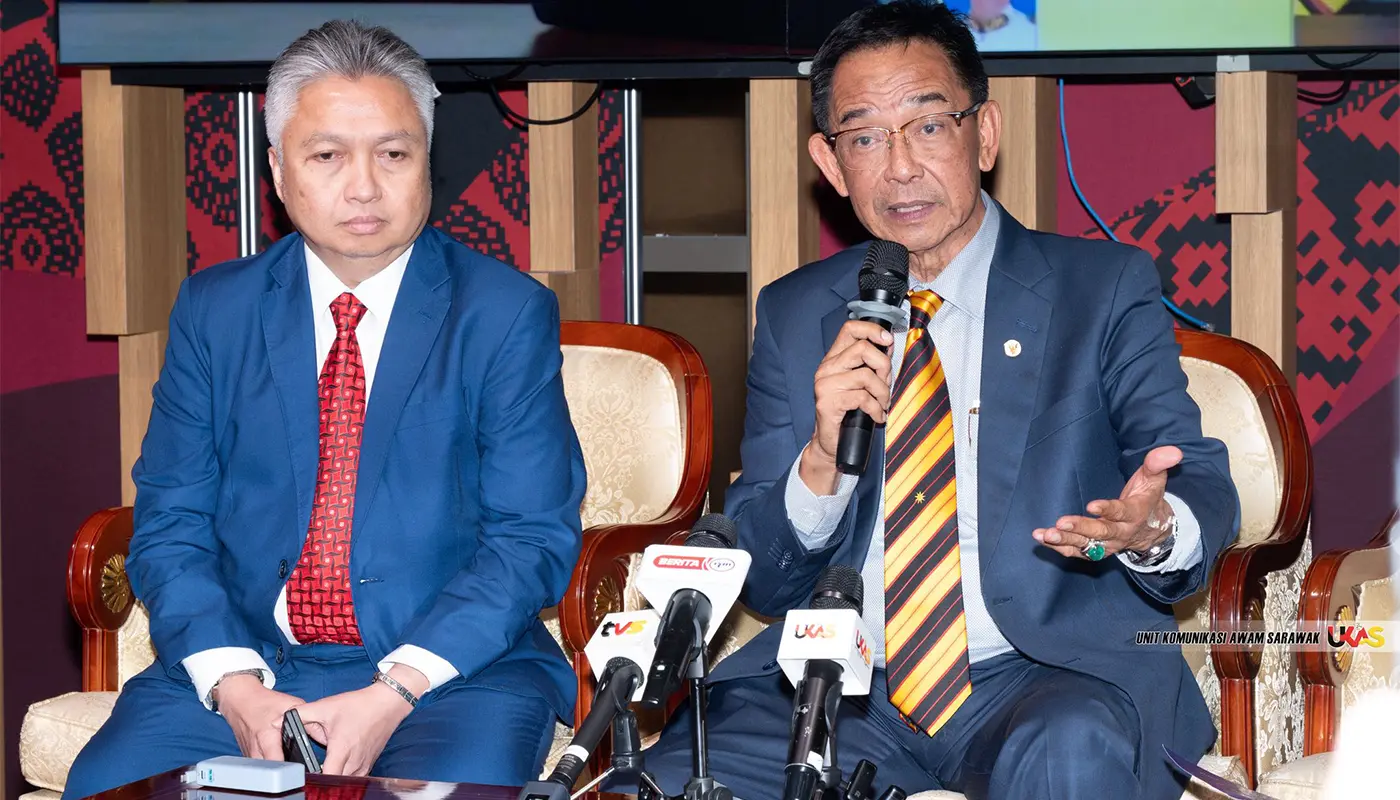KUCHING – The Sarawak State Legislative Assembly has approved the Sarawak Constitution (Amendment) Bill 2025, marking the first major change to the state’s Cabinet structure in three decades.
The amendment increases the maximum number of State Executive Council Members (MMKN) from 10 to 14, excluding the Sarawak Premier. The last adjustment to Cabinet composition was made in 1995, underscoring the significance of this latest reform.
Dato Sri Abdul Karim Rahman Hamzah, Minister of Tourism, Creative Industries and Performing Arts, described the move as timely and necessary to meet the demands of Sarawak’s evolving development landscape.
“If we look, the last time the amendment was made was in 1995. It has been 30 years now. This shows that the change this time was not in a hurry, but came because of the growing current needs,” he said during a press conference following the bill’s approval.
He explained that Sarawak’s administrative and economic environment has transformed considerably since the mid-1990s, with new industries such as green energy, hydrogen, the digital economy, carbon trading and methanol production requiring more specialised policy attention.
The expansion of ministries, he argued, would allow the government to address these sectors with greater focus and efficiency.
The increase in assembly seats from 82 to 99 further reinforced the need for Cabinet restructuring, ensuring governance remains balanced and responsive to the state’s wider representation.
Although the amendment permits up to 14 ministers, Abdul Karim clarified that the decision on the actual number, as well as the creation, division or reorganisation of ministries, rests entirely with the Sarawak Premier, Datuk Patinggi Tan Sri (Dr) Abang Abdul Rahman Zohari Tun Datuk Abang Openg.
“The Sarawak Premier can add, split or reduce ministries according to the need. The prerogative is entirely his,” he said.
On financial considerations, Abdul Karim stressed that any expansion would only proceed once the government is confident it can fully support the administrative costs, including budgets for agencies, operations and support structures. He assured that fiscal responsibility would remain central to decisions on Cabinet growth.
The amendment is widely seen as a strategic step to strengthen Sarawak’s governance capacity, aligning its administrative framework with rapid economic changes and positioning the state to manage new opportunities more effectively.



